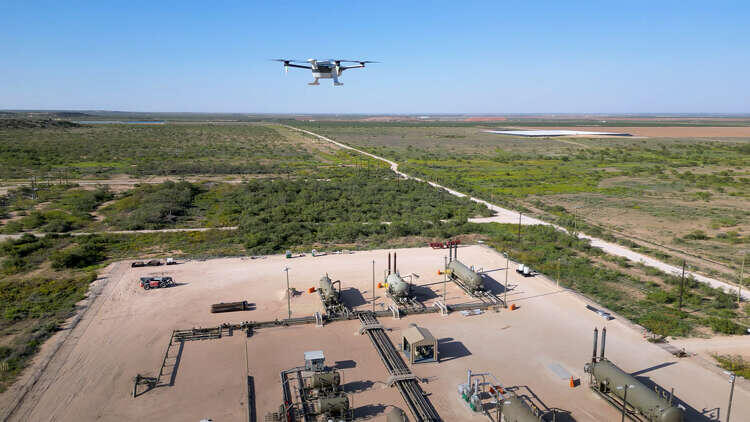AI's Explosive Growth Set to Destroy Air Travel Goals - Is the Tech Revolution a Hidden Climate Killer?
Saturday, July 19, 2025

As the world intensifies its focus on achieving net-zero emissions, a concerning contradiction is emerging. While governments and companies commit to reducing carbon footprints, there is growing concern over the environmental impact of one of the most rapidly expanding sectors: artificial intelligence (AI). Researchers from the University of Cambridge have highlighted a significant challenge, noting that AI’s carbon emissions are projected to far exceed those of air travel in the coming years, threatening the very goals that net-zero initiatives aim to achieve.
In a comprehensive report released in July 2025, the Cambridge team stated that the technology sector’s self-reported global emissions have been growing rapidly even before the generative AI boom. The sector is expected to account for 8% of global greenhouse gas emissions by the end of the next decade, raising alarms about the long-term sustainability of AI’s rapid rise.
As AI technology continues to advance, its infrastructure demands have grown in parallel. The infrastructure that powers AI, including massive data centers, requires vast amounts of electricity and water. This growing investment in AI infrastructure brings significant environmental costs, as researchers warn that AI’s increasing energy consumption could undo much of the progress made in reducing global carbon emissions. The resources needed to support AI’s growth are already considerable, and experts predict that this will only escalate in the coming years.
Currently, data centers, which form the backbone of AI operations, already consume between 2% and 4% of the electricity in major economies such as China, Europe, and the United States. With energy grids already under strain in many parts of the world, the growing demand for electricity to power AI operations poses a challenge to sustainability. As John Naughton, chair of the Advisory Board at Cambridge’s Minderoo Centre for Technology and Democracy, points out, every megawatt of energy allocated to AI data centers is one that could have been used for housing, manufacturing, or other essential sectors.
Governments and companies around the world have invested heavily in efforts to meet net-zero emissions targets, with a focus on reducing or eliminating carbon emissions by mid-century. However, the rapid expansion of AI technology, coupled with its insatiable energy demands, is beginning to undermine these efforts. The paradox is that while governments push for more sustainable, low-carbon technologies, they are also fostering the growth of an industry that is projected to be a significant contributor to global emissions.
This contradiction has raised questions about the true feasibility of achieving net-zero targets while supporting the continued growth of AI. The AI industry, with its vast data needs, is becoming a major consumer of fossil fuels, particularly as the demand for electricity skyrockets. The more AI technology expands, the more it risks sabotaging the progress made in other sectors aimed at reducing carbon emissions.
The environmental concerns surrounding AI are compounded by growing unease over its potential impact on society. A recent Gallup survey revealed that almost half of respondents believe AI is “very different from the technological advancements that came before,” with many fearing it could harm humans and society at large. Six out of ten individuals polled expressed concern that AI would reduce the need for humans to perform important or creative tasks, with only 38% believing AI would primarily handle mundane tasks, allowing humans to focus on higher-impact work.
In addition to fears about job displacement, almost two-thirds of those surveyed indicated that they would resist using AI for as long as possible. This resistance could create further challenges, as companies increasingly adopt AI technologies in an effort to stay competitive. The growing dependence on AI is expected to drive up electricity demand, which in turn will increase reliance on fossil fuels, further complicating the global push for net-zero emissions.
The rapid growth of AI raises important questions about the relationship between technological advancement and environmental sustainability. While AI promises to revolutionize industries and improve efficiency, it also presents significant challenges when it comes to energy consumption. As AI systems become more powerful and widespread, they will inevitably require more resources, which could ultimately offset the gains made in other areas of sustainable development.
The question remains: can the world continue to embrace AI and its benefits while ensuring that the energy demands of the sector do not derail efforts to combat climate change? This dilemma highlights the need for careful planning and consideration when it comes to integrating AI into the global economy. Innovations in AI must be accompanied by innovations in energy efficiency, waste management, and sustainable resource use to ensure that progress in technology does not come at the expense of the planet.
Experts argue that the key to mitigating the environmental impact of AI lies in developing more sustainable practices within the industry. This includes finding ways to make data centers more energy-efficient, using renewable energy sources to power AI operations, and implementing strategies to minimize waste and water consumption. Additionally, AI developers and researchers must work collaboratively with governments and environmental organizations to create policies and guidelines that promote responsible AI development.
One potential solution is to invest in greener AI technologies that rely on less energy-intensive models. Research into more efficient algorithms, energy-efficient hardware, and AI systems that can be powered by renewable energy sources could help reduce the carbon footprint of AI. Furthermore, companies and governments must prioritize the integration of AI into sectors that can benefit from sustainable practices, such as renewable energy, environmental monitoring, and climate change mitigation.
As AI continues to advance, the world faces a critical challenge: how to balance the benefits of this transformative technology with the pressing need for environmental sustainability. The growing energy demands of AI, coupled with its projected impact on global emissions, create a complex situation that requires thoughtful, proactive solutions.
Governments and companies must address the environmental costs of AI while continuing to foster innovation in this important sector. The path forward will require a careful balance between technological progress and ecological responsibility, ensuring that the rise of AI does not undermine the global fight against climate change. With the right policies, investments, and technological innovations, it is possible to create a future where AI serves humanity’s needs without compromising the planet’s health.
You may also like...
Diddy's Legal Troubles & Racketeering Trial

Music mogul Sean 'Diddy' Combs was acquitted of sex trafficking and racketeering charges but convicted on transportation...
Thomas Partey Faces Rape & Sexual Assault Charges

Former Arsenal midfielder Thomas Partey has been formally charged with multiple counts of rape and sexual assault by UK ...
Nigeria Universities Changes Admission Policies

JAMB has clarified its admission policies, rectifying a student's status, reiterating the necessity of its Central Admis...
Ghana's Economic Reforms & Gold Sector Initiatives

Ghana is undertaking a comprehensive economic overhaul with President John Dramani Mahama's 24-Hour Economy and Accelera...
WAFCON 2024 African Women's Football Tournament

The 2024 Women's Africa Cup of Nations opened with thrilling matches, seeing Nigeria's Super Falcons secure a dominant 3...
Emergence & Dynamics of Nigeria's ADC Coalition

A new opposition coalition, led by the African Democratic Congress (ADC), is emerging to challenge President Bola Ahmed ...
Demise of Olubadan of Ibadanland
Oba Owolabi Olakulehin, the 43rd Olubadan of Ibadanland, has died at 90, concluding a life of distinguished service in t...
Death of Nigerian Goalkeeping Legend Peter Rufai

Nigerian football mourns the death of legendary Super Eagles goalkeeper Peter Rufai, who passed away at 61. Known as 'Do...





